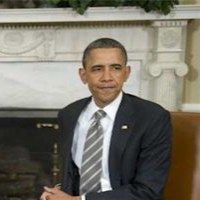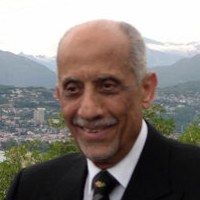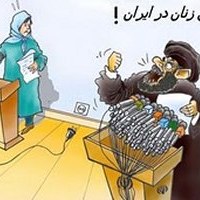![]()
Thu, Feb 10, 2011 | WikiLeaks
WikiLeaks: U.S. Seeking Ways to Advance Human Rights in Egypt
From the Januari 31, 2010 cable: In meetings January 13-14, A/S Posner [Michael H. Posner, Assistant Secretary of State for the Bureau of Democracy, Human Rights and Labor] told activists and opposition politicians that the U.S. is seeking ways to advance human rights and political participation over the coming 12-18 months. Opposition political leaders agreed that prospects for significant political reform are slim while President Mubarak remains in office. Most expected Mubarak to be a candidate in 2011, and predicted the military would play a role in succession to ensure stability.
Source: WikiLeaks
Reference ID: 10CAIRO145
Created: 2010-01-31 14:02
Classification: CONFIDENTIAL
Origin: Embassy CairoVZCZCXRO2491
RR RUEHROV
DE RUEHEG #0145/01 0311459
ZNY CCCCC ZZH
R 311459Z JAN 10
FM AMEMBASSY CAIRO
TO RUEHC/SECSTATE WASHDC 0089
INFO ARAB ISRAELI COLLECTIVE
RHEHNSC/WHITE HOUSE NATIONAL SECURITY COUNCIL WASHINGTON DCC O N F I D E N T I A L SECTION 01 OF 03 CAIRO 000145
SIPDIS
DRL FOR A/S POSNER
FOR NEA, NEA/ELA AND DRL/NESCAE.O. 12958: DECL: 2035/01/31
TAGS: PREL PGOV PHUM KDEM EG
SUBJECT: A/S POSNER ENGAGES WITH CIVIL SOCIETY, POLITICAL OPPOSITIONREF: CAIRO 64; CAIRO 47; 09 CAIRO 2111; 09 CAIRO 1997; 09 CAIRO 1977
CLASSIFIED BY: Margaret Scobey, Ambassador; REASON: 1.4(B), (D)
¶1. Key Points:
— (C) In meetings January 13-14, A/S Posner told activists and opposition politicians that the U.S. is seeking ways to advance human rights and political participation over the coming 12-18 months.
— (C) Activists urged the U.S. to end a “double standard” on
Israeli human rights violations, close Guantanamo and speak out
against GOE repression.— (C) Opposition political leaders agreed that prospects for
significant political reform are slim while President Mubarak
remains in office. Most expected Mubarak to be a candidate in
2011, and predicted the military would play a role in succession to
ensure stability.— (C) Former Presidential candidate Ayman Nour urged A/S Posner to
press the GOE to stop interfering with opposition political
activity, and to allow him to work and travel.¶2. (C) A/S Posner told activists the U.S. is interested in how to
advance human rights in Egypt over the next 12-18 months to improve
people’s lives. He said the U.S. would pursue a traditional human
rights agenda to address police brutality, restrictions on NGOs,
freedom of expression and assembly problems, sectarian tensions,
and the State of Emergency. Posner noted that the U.S. is engaged
on the coming Egyptian elections, and is working on issues of
observation, participation and training. Posner said that the UN
Human Rights Council focuses disproportionately on Israel. He
described the Goldstone Report as flawed for not being able to
include the Israeli government position, and called for Israeli and
Palestinian domestic investigations into human rights violations
during the Gaza war.——————————————— ————
Civil Society Recommendations for the U.S.
——————————————— ————
¶3. (C) Egyptian Initiative for Personal Rights Executive Director
Hossam Bahgat urged the U.S. to “practice what it preaches” on
human rights by closing the Guantanamo Bay prison. Bahgat called
on the U.S. to end a “double standard on Israeli human rights
violations,” and expressed disappointment with the U.S. position on
the Goldstone Report, which he asserted “makes it harder for us to
cooperate with you” on human rights. Bahgat recommended the State
Department human rights report assess that the situation in Egypt
declined in 2009. Bahgat asserted that many Egyptians believe the
GOE has interpreted the current administration’s relative “silence”
on human rights and political issues as a signal of support.——————————————–
Activists’ Concerns and Criticism
——————————————–
¶4. (C) Director-General of the Cairo Institute for Human Rights
Studies Bahey Al-Din Hassan said he was unsure of what current U.S.CAIRO 00000145 002 OF 003
human rights policy is. He expressed concern over lack of U.S.
public criticism of Syria for human rights violations, and U.S.
support for Yemeni President Saleh while he represses his people.
Hassan expected increasing GOE repression leading up to the 2010
parliamentary and 2011 presidential elections. Hassan said he was
initially optimistic when the Forum for the Future was launched
that it would strengthen partnerships between Arab governments and
civil society. Instead, Hassan asserted, government-controlled
NGOs have dominated the Forum. Hassan noted that because of this
phenomenon, he has not participated in the Forum since 2005.¶5. (C) Labor activist Kamal Abbas asked what the U.S. would do to
address expectations that fraud would pervade the 2010 and 2011
elections, and that Gamal Mubarak would inherit power from his
father. Human rights lawyer Tarek Khattar asserted that U.S.
support for the GOE encourages it to repress the Egyptian people.
He contended that President’s Obama June 4 Cairo speech has not
produced “any positive results” in Egypt. Women’s rights activist
Mozn Hassan criticized the President’s speech for “equating women
throughout the region with each other,” instead of recognizing
their differences. Human rights lawyer Atef Hafez complained that
the U.S. denied him entry to the Guantanamo Bay prison to visit a
prisoner he was trying to represent. Hafez also complained that
the Guantanamo prison is still open despite President Obama’s
commitment to close it. Activist Mohammed Zarea called for the
U.S. to urge the GOE to make significant changes to open up
political life.¶6. (C) Noting widespread dissatisfaction with political leaders on
all sides, “April 6” leader Ahmed Salah said the 2010 and 2011
elections represented the only opportunity for change, and pressed
for more immediate action. He called for greater internal and
external pressure on the GOE to increase freedom of assembly and
expression, lift the State of Emergency, improve election
procedures with electronic voting, and allow registration with
national identification cards.——————————————— —————-
Opposition Political Leaders on Egypt’s Future
——————————————— —————-
¶7. (C) At a dinner with opposition political party leaders, A/S
Posner asked about prospects for democratic change. Most expected
Mubarak to run in 2011, leaving little room for change. Wafd
President Mahmoud Abaza and Democratic Front President Osama
Al-Ghazali Harb said they were focused on preparing for a
post-Mubarak transition, whenever that may occur. In addition to
their plans to participate in the 2010 parliamentary elections,
opposition party leaders said they are pressing the GOE and the
ruling party for a “national dialogue.” The leaders agreed that
the military would play a significant role in any post-Mubarak
scenario, and that constitutional provisions would be secondary to
concerns about internal stability. Leader of the un-registered
Reform and Development Party Anwar El-Sadat asserted that the
military would not support Gamal Mubarak’s succession to the
presidency, but that loyalty to President Mubarak kept it from
acting to sideline Gamal now. Abaza called Egypt’s military
“apolitical,” but predicted the military would to step in to ensure
stability if necessary.¶8. (C) Regarding U.S. democracy promotion, the group called for
continued support to civil society and “principled” pressure on the
GOE. However, Sadat noted sensitivities over “outside
interference” in both the regime and opposition camps. Al-Ghad
Party Vice-President Wael Nawara suggested that external criticism
should be matched with primarily economic “incentives” to encourage
the government to commit to concrete democratic reforms.——————————————— ————-
Former Presidential Candidate Ayman Nour
CAIRO 00000145 003 OF 003
——————————————— ————-
¶9. (C) In a separate meeting, Al-Ghad party founder Ayman Nour said
Egyptians were ready for change and seeking leadership. “I’m
banned from participating in the coming elections, but I will be
part of the political fight,” Nour asserted. Nour opined that the
GOE’s prevention of a liberal alternative to Gamal Mubarak
strengthened the Muslim Brotherhood. He underlined the impact of
the security services’ interference with opposition political
activity, and advocated increased U.S. pressure to highlight GOE
restrictions. Nour urged A/S Posner to press the GOE to restore
his own personal rights by allowing him to resume his work as an
attorney or journalist, travel abroad and sell his assets. Nour
thanked A/S Posner for the Department’s November 6, 2009 public
statement expressing disappointment at the GOE’s decision to
prevent him from travelling to the U.S.¶10. (U) A/S Posner cleared this message.
SCOBEY



 RSS
RSS












#WikiLeaks: #US Seeking Ways to Advance Human Rights in #Egypt | #Jan25 http://j.mp/fWI2pa
RT @CrethiPlethi: #WikiLeaks: #US Seeking Ways to Advance Human Rights in #Egypt | #Jan25 http://j.mp/fWI2pa